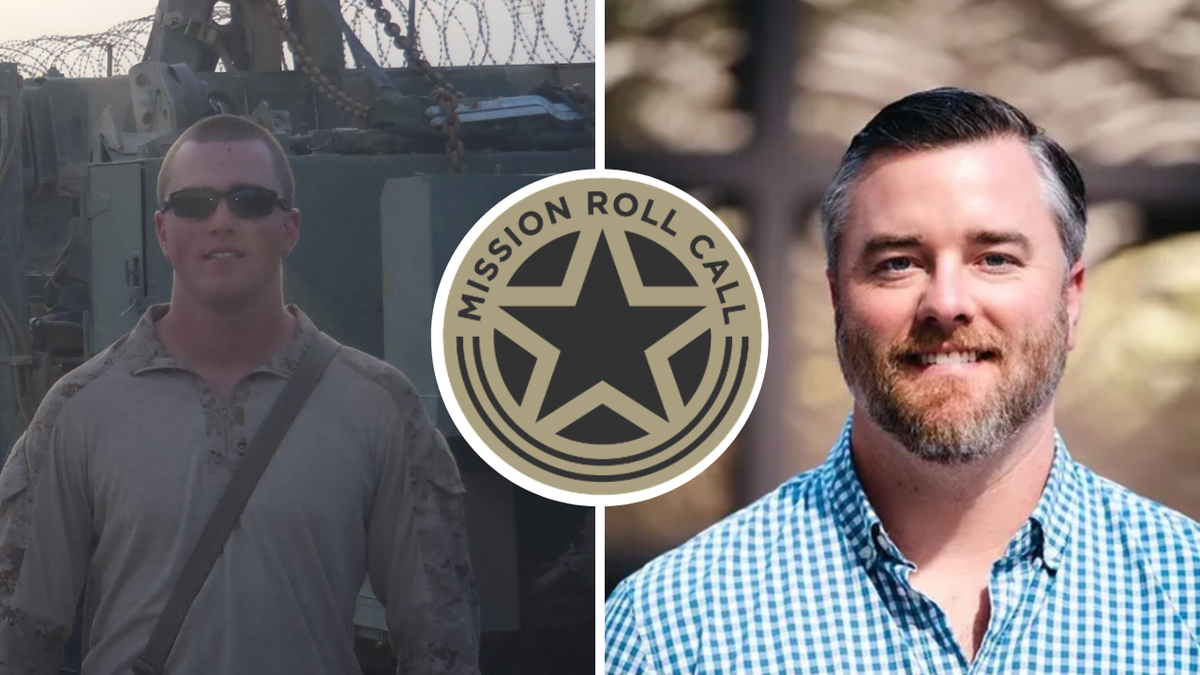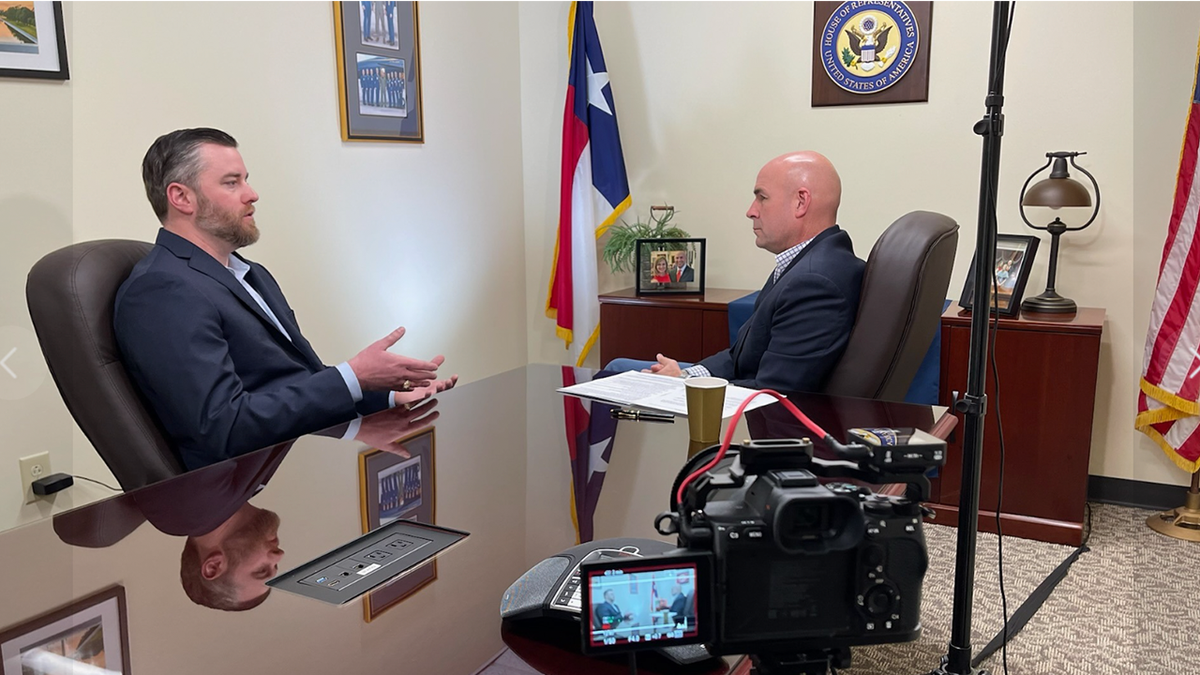Tech company deploys AI to reduce veteran suicide: ‘Stay in the fight’
ClearForce Vice President Col. Michael Hudson told Fox News Digital how artificial intelligence is being used to identify military vets who may be struggling with mental health issues.
Veteran suicide has seen an 11.6% spike between 2020 and 2021, totaling 6,392 suicides in 2021 alone, according to the Department of Veteran Affairs' Veteran Suicide Report released this month.
Cole Lyle, U.S. Marine Corps veteran and executive director of Mission Roll Call (MRC), spoke with Fox News Digital about the new report, explaining why veteran suicide is an increasing issue, as well as what the Department of Veterans Affairs (VA) can do to prevent veterans from taking their lives.
"It's a disturbing trend that after going down for two years, we saw spike," Lyle told Fox News Digital. "After COVID and the Afghanistan withdrawal … it's probably not surprising that we saw an increase in veteran suicide."
"Anecdotally, we saw a lot of evidence that both of those events were negatively impacting the mental health in the veterans community and suicide rates," he added. "I mean, personally, I had to talk a few friends down off the ledge during the Afghanistan withdrawal crisis, so I don't think anybody necessarily is surprised by this increase. But, it is tragic and there are seemingly simple things that we could do to at least try to reverse this trend."

After serving in Afghanistan, U.S. Marine Corps veteran Cole Lyle said he came close to taking his own life. (Cole Lyle)
The veteran suicide rate has increased by 38% year over year since 2001 and the unadjusted rate of suicide in 2021 among U.S. veterans was 33.9 per 100,000, which was up from 32.6 per 100,000 in 2020.
"This was the highest rate of suicide that's been recorded since we started recording in 2001," Lyle told Fox News Digital. "It is the largest single year increase, and it's now the number two cause of death by veterans under the age of 45."
Lyle explained the issue, among veterans in particular, is deeply personal issue to him because he came close to taking his own life after serving in Afghanistan.
"I got out of the Marine Corps in 2014 and … I wasn't employed, wasn't in school, was going through a nasty divorce, and I was almost a veteran suicide statistic," Lyle said. "So outside of having to deal with other veterans that I served with who were suicidal and talk them off the ledge, it's personal to me because I've dealt with this."
He explained the trend as tragic because "communities across the nation are being robbed of a valuable resource in veterans" because they often continue serving their communities when they come back from military service. In addition, he said veterans have a very high rate of successful entrepreneurship, graduation rates and volunteer hours in their local communities.
Lyle said veteran suicide prevention is the number one priority of MRC because they routinely hear that is the number one issue for veterans across the country, but they also educate veterans about their healthcare options and work on behalf of tribal and rural veterans who face unique challenges to accessing resources after their service.

Lyle worked as an advisor to senior leadership at VA and on veteran policy in the United States Senate, so he is familiar with how the federal government reaches veterans. (Cole Lyle)
Prior to MRC, Lyle worked as an advisor to senior leadership at VA and on veteran policy in the United States Senate, so he is familiar with how the federal government reaches veterans. He believes the VA's outreach is "really inadequate because less than 50% of veterans actually use the VA out of the 17.4 million veterans in the United States."
"So over half the population, they're not even reaching, and they view this entire thing through the lens of mental health, when in reality, suicide is not always a mental health problem," he explained. "It's oftentimes a collection of problems, acute financial stress, relationship stress, unemployment and, yes, sometimes a service connected mental health issue."
Lyle said it is usually a collection of three or more issues that happen at one time, so he said his group has been advocating for the VA to provide more grant funding to local organizations to alleviate problems like financial or relationship stress, as well as access to education and employment services.
AIR FORCE VETERAN AND HIS WIFE FACED PTSD HEAD-ON WITH THE HELP OF ALL SECURE FOUNDATION
"We are looking to dramatically expand that budget at the VA, which is right now only one tenth of 1% of the VA's overall budget," because over 50% of veterans don't use VA, they leverage the local nonprofits that provide some of these services upstream before a veteran gets to a crisis point, he said.
Lyle believes suicide disproportionately affects veterans and the veteran community, because the group of Americans who serve often join the military out of high school and come from disadvantaged backgrounds. Because of these factors, when they get out of service and are no longer part of the military, they have to rediscover their identity and adjust to civilian life.
"We spend a lot of time teaching them how to be a uniformed member of the military, work as a team and then they get out and they don't have that same reversal of 'Let's teach you how to be a civilian now and your success is largely personally driven,'" Lyle explained. "When they were in the military, maybe they didn't have to be as financially responsible as they do when they're on their own because … food was paid for and housing was paid for, so there are a lot of transition issues that happen when they get out."
As a community, Lyle said Americans can help by volunteering or donating to a local nonprofit for veterans that helps homeless vets or those facing food insecurity.
"Anything like that, that you can do to help veterans in your community is great because it helps catch some of these upstream issues before it becomes a critical mass of despair," he said.
